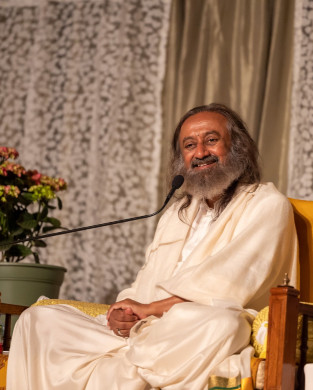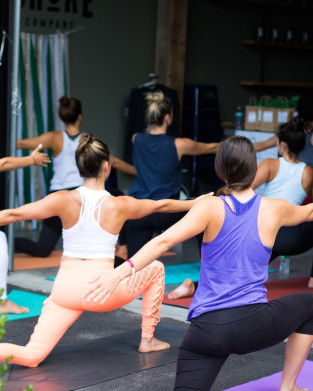The Art of Living Difference
The timeless practice of meditation has allowed millions of people all across the globe to live happier, healthier and fuller lives. With more than four decades of international teachings, The Art of Living has guided more than 500 million people to experience profound personal transformations. Our Melbourne-based centre offers programs including guided meditation, yoga, and personalised practice, all emphasising balance, clarity, joy and the uplifting of the human spirit. Get ready to be a part of a vibrant community, and embark on your spiritual journey!

44 years
of service to society

40,000+ centers
worldwide with weekly follow up sessions

180+ countries
where we make a difference

800M+ lives
touched through our courses and events
Our Flagship Courses
The Happiness
program
- Create lasting happiness 500M lives changed
- Evidence-based breathing techniques - practiced for over 42 years
- Proven techniques globally - over 10,000 centres
The Art of Meditation Sahaj Samadhi Meditation
Children &
Youth classes
Yoga classes
Our Melbourne Meditation Centre’s
Join in-person meditation and yoga classes across Melbourne, and join our community of like-minded individuals. Explore our North Melbourne, St Kilda, and Richmond classes to start your journey to understand the mind and find inner peace.
Featured in
Free Introduction to the Happiness Program
- Join a Free 75min Introductory Session
- Learn evidence-based breathing techniques to calm the mind
- Experience a guided relaxation & learn about the nature of the mind
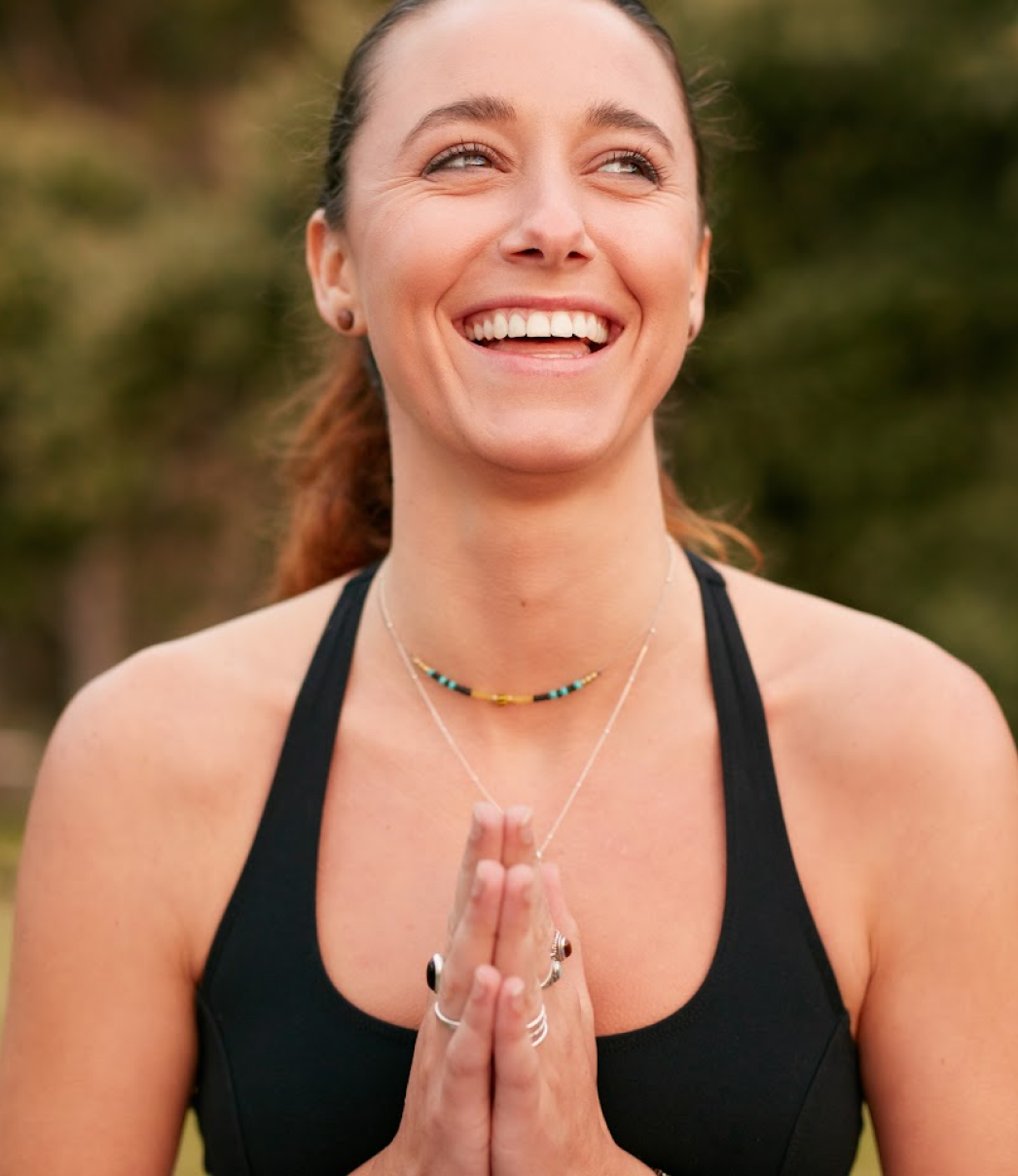
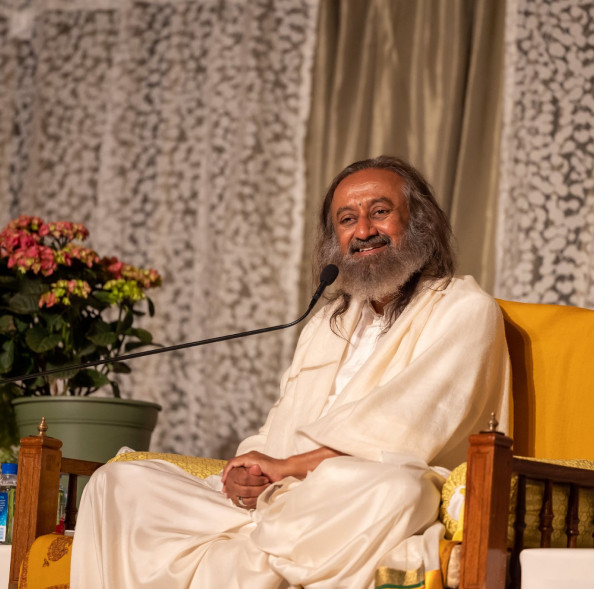
Powerful programs brought to you by Gurudev Sri Sri Ravi Shankar.
Gurudev Sri Sri Ravi Shankar is a global humanitarian, spiritual leader, and peace envoy, who has been teaching breath-based meditation techniques for health and well-being for more than 40 years. His approach blends ancient Vedic wisdom with modern sensibility for a new paradigm of leadership, living a stress-free life and creating a violence-free society.
Through Gurudev’s programs, millions of people worldwide have found peace and resilience in the face of adversity, learning not only how to excel in their own lives, but also how to become powerful agents for social change.
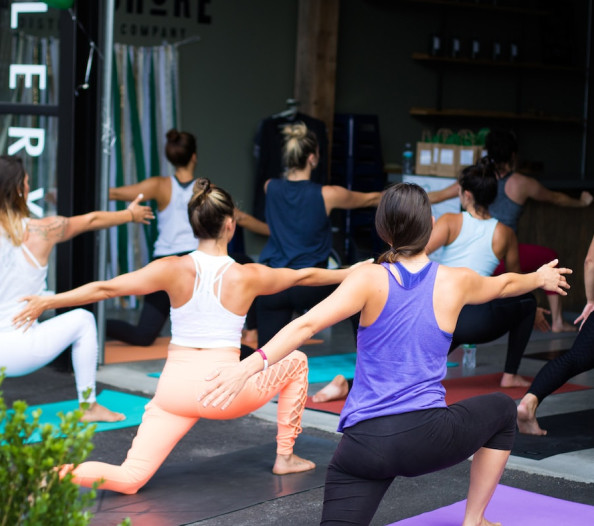
Additional courses
Explore Art of Living’s revolutionary range of courses to help master your mind and develop into your personality.
Sri Sri Yoga
- Authentic yoga practice that deeply benefits the mind.
- Experienced & certified instructors to guide you through evey step of the way.
Kids & Youth Courses
- Build confidence, develop a well-rounded personality, and nurture human values within your child.
- An engaging life-skill program that helps establish their values.
Intuition Process
- Revolutionary two-day program for children and teenagers from 5 years up to 18 years of age.
- Learn Art of Living’s proven techniques on brain activation & meditation.
Happy Experiences
Looking for advanced techniques?
Advanced Courses
*open to people who have completed the Happiness Program
Classes Across Australia
Art of Living hosts meditation and yoga classes across Australia, allowing people to connect with
like-minded individuals to understand the nature of the mind and find peace.
Contact and Directions
How to get to our meditation classes in Melbourne?
The Art of Living runs a range of wellbeing programs & meditation classes in Melbourne. While we don’t operate from a single permanent venue, many of our sessions are held in the South Yarra area, particularly near River Street, Malcolm Street, and Tivoli Road.
Depending on the program and time of year, our Melbourne sessions may also take place in suburbs like Hawthorn, Docklands, and Fraser Rise.
Many of our classes are hosted in South Yarra, within walking distance of key landmarks such as Vogue Shopping Plaza (BIG W South Yarra), Zeus Street Greek, and The Peacock South Yarra.
Getting Here Is Simple:
By Train :
South Yarra Station is approximately a 10-minute walk (750 metres). Walk along Toorak Road, turn onto Chapel Street, and then head down River Street.
By Tram :
Several tram routes run along Chapel Street. Alight near Malcolm Street — it’s about a 2–3 minute walk from there.
By Car :
Limited street parking is available on River Street, Tivoli Road, and nearby streets. Paid parking is also available at 670 Chapel Parking (entry via River St or Malcolm St), just a 3-minute walk (200 metres) from our common venue.
Nearby Landmarks Often Close to Our Melbourne Sessions :
- Vogue Shopping Plaza (BIG W South Yarra)
- Priceline Pharmacy South Yarra
- Zeus Street Greek South Yarra
- The Peacock South Yarra
- 670 Chapel Parking (Secure Parking)
Other Regular Session Locations Across Melbourne:
- Be Well – 6 Roche Street, Hawthorn VIC
- The Hub at Docklands – 80 Harbour Esplanade, Docklands VIC
- City Vista Community Centre – 46 City Vista Court, Fraser Rise VIC 3336
Melbourne, Victoria, 3000 See Additional Contacts
Questions?
The average cost of a meditation class in Melbourne ranges from $20 - $150, averaging around $55 - $60 per class. The cost of meditation classes in Melbourne depends on the type of meditation, the experience, group class or private and the duration of the meditation.
The cost of one-on-one meditation classes in Melbourne range from $75–$200 per hour on average.
As beginners, we recommend starting with 5 – 10-minute meditations and then gradually building up to 20 minutes or even longer (not required). As a general guideline, 20 minutes is an ideal time to meditate. However, if you feel particularly stressed and wish to create calmness or increase concentration, we recommend you work for up to 30 minutes, including implementing and learning breathing techniques such as the one breath-based meditation called the SKY Breath Meditation technique and Modern Mantra Meditation.
We also recommend you read our article A beginners guide to meditation or 8 tips to get started with Meditation to help you find out some trick and tips to start you on the way. and watch our video 10 Minute Guided Meditation for Beginners to help you find out some trick and tips to start you on the way.
The duration of meditation classes lasts from 30 minutes – 1 hour, depending on the class. If you are looking into starting meditation classes, Art of Living Introductory Classes are 1 hour long and a great introduction to meditation. During this session, you get a taste of The Happiness Program and SKY Breath Meditation in a free 1-hr class. The Art of Living Happiness Program is 2 hours long that gives you expert training in a series of yogic breathing techniques which can reduce your stress and relieve anxiety and depression. It is a 3 Day Program that delivers you A Lifetime of Happiness. Art Of Living SKY Breath Meditation is a 2.5-hour daily live session, with certified expert instruction offering guided techniques with Q&A, real-time support and interactive wisdom sessions delivered to small group size.
How long you meditation depends on your preferences, life circumstances, and the time available. You can begin with 5-10 minutes and then gradually build up to 20 minutes or even longer (not required). As a general guideline, 20 minutes is an ideal length of time to meditate.
If you meditate every day and regularly practice meditation you will see the benefits. The benefits of meditating everyday are:
- Improve our physiological response to stress
- Lowers the oxidative stress
- Reduces blood glucose levels
- Reduces risk of cardiovascular diseases, where stress is a high-risk factor
- Reduction in hormonal releases caused by stress: cortisol, corticotropin, blood lactate, ACTH, and plasma MDA
- It relaxes and de-stresses the mind
- Increases acceptance
- Boosts productivity
- Gives stability of mind
- Establishes you in the calm and peaceful state
- Helps you realize inner happiness
- Improves metabolism
- Improves mood
- Improves focus
- Enhances your sense of well-being
- Increases connectedness and empathy
- More creativity and better decision making
- Better brain health
- Better pain management
- Improved and richer relationships
- More capacity to embrace opposites
You get a deeper rest from a short 20-minute meditation than sleep and is equal to four hours of undisturbed sleep. Research says, those who meditate ever day can manage to stay productive by sleeping for just five hours.
Meditation everyday allows for a qualitative pause in your day and helps you relax and unwind in just a few minutes. It has been termed as a powerful fuel to increase your productivity and helps stability of mind.
Meditating everyday offers you the ability to de-clutter your mind, find your inner rhythm and break away from habits that can cause self-harm and sabotage.
The reasons you choose to meditate every day can be physical, mental, emotional as well as spiritual. Meditating every day can keep stress out of our lives and closes the door on a host of lifestyle disorders caused and worsened due to stress, like hypertension, diabetes, anxiety, chronic inflammation, skin diseases like Psoriasis, and depression.
You can meditate by lying on the bed and resting your head on the pillow. You may choose to close your eyes or keep them open. Relax into the bed by sinking your arms and legs onto the bed, allowing it to take your weight. Alternatively, you can choose to sit while meditating on the bed than the bed. Whatever works for you is fine. Some people listen to music whilst meditating in bed, although music can be a distraction and hindrance rather than a help. Once you are a pro and have established yourself in your meditation practice, you may not need any music. Here is what our experts share about the pros and cons of using music while meditating
When you meditate, the environment should not matter. To truly meditate, you separate from your environment and all around you. Some people choose to mediate in the dark and others in the light. Some find the calming and relaxing soft light from a lamp can help de-stress and create a space in which you feel comfortable meditating.
You should meditate in bed how you meditate sitting down or standing. Sit or lie straight and comfortably without feeling rigid. Since the mind and body are connected, moving the body tends to keep the mind moving and active. By sitting still, you're one step closer to a quieter, relaxed mind
Use cushions and pillows in bed to help find a relaxed, upright posture.
Keep your palms open and rest them on your knees or if lying down place them at your side to help the free flow of life force energy.
We recommend closing your eyes as this is the best way to meditated as the eyes are one of your five sense organs, we suggest keeping your eyes closed to heighten your other senses. Closing your eyes will help quieten the mind and prevent the outside problems hindering your journey inwards, allowing you to bring your attention within and fully rest.
During meditating in bed, allow your breath to get lighter and smoother. Breathing exercises like alternate nostril breathing and light and even breath can help quiet the mind as breathing is connected to your mind. One powerful tip for deep meditation is allowing your breath to get lighter and smoother. Since the breath is so connected to your mind, a light and even breath can help to bring the mind to an ever-quieter place. With breathing exercises like alternate nostril breathing, your breath naturally becomes smoother and lighter. As the meditation continues, your breath will slow down and bring the mind to an ever-quieter place on its own.
For further information on meditating, check out our handy A beginners guide to meditation and watch our video 10 Minute Guided Meditation for Beginners.
However, we do not recommend meditating in bed or meditating lying down. Meditation is a form of conscious relaxation where the mind is alert yet relaxed. When lying down, the mind tends to fall asleep and may cause you to lose your alertness.
You can calm yourself down when meditating by using breathing as a tool to bring the stressed, anxious or emotionally charged mind-body complex to a calm and centred state. Yogic breathing techniques like Pranayamas such as Bhastrika (bellow’s breath) or alternate nostril breathing and ujjai (victory breath) regulate the breathing and slow it down as we bring our attention to the breathing patterns. Just this act of observing our breath and the way it moves between nostrils can be meditative and instantly energising. Focused breathing cultures our minds to keep coming back to the present moment. You can calm yourself down when meditating and letting go during deep states of meditation. Your breathing can become very subtle. As your breath quiets down, you will begin to notice the quiet space between your breaths- sink into these spaces. If you can gently sink into these spaces and this practice, you'll find yourself between a calm breath and a quiet space.
To calm yourself down when meditating it is important to create a calming, relaxed atmosphere to relax, calm and meditated and it is down to personal preference. Some people choose to mediate in the dark and others in the light. Some find the calming and relaxing soft light from a lamp can help calm them during meditation and create a space that they feel comfortable meditating in.
To create a calm atmosphere and calm yourself down during meditation choose and reserve a time that suits your household and schedule. If you know there is a particular time when the kids have gone to school, you have some time to yourself or that you know that the house is quiet, then use that time to meditate. Meditation is your time to relax and be present with yourself, a time away from distractions, disruptions and the outside world. Free yourself from distractions and allow yourself the time you deserve.
To calm yourself down during meditation, don’t let your thoughts distract you. Instead, simply observe them come and go without getting drawn into them. Again and again, keep becoming aware of the thoughts. You’ll notice over time, the frequency of your thoughts reduce.
The time you choose to meditation varies from each person. Realistically, the modern world with all its task, schedules and appointments requires a balance that suits your lifestyle and life.
Most people choose to meditate in the morning, rested for the day. Others prefer at night ready for sleep and relaxation. A modern lifestyle requires a modern meditation schedule
You may find that you experiment and try different times, lighting and locations that suit your lifestyle, your schedule and your preference.
This is YOUR journey; therefore, you need to find what works for you. There is no correct answer, there is no perfect time, you do what is right for you.
With that in mind, there are certain times of day that you may find it easier or preferable to meditate:
Rise with Sunrise:
Many meditators find Sunrise an effective time to meditate. If you are an early riser, this time may suit you perfectly to start your day off and set the tone for the rest of your day. At Sunrise, the outside world is quiet, perfect for quietening the mind and an excellent time for reflection.
Sunrise, Sunset:
The natural transition from day to night and reversed is also an ideal time for meditation and reflection and is truly a perfect way to start or end the day.
A quiet time to relax and be present:
Choose and reserve a time that suits your household and schedule. For example, if you know there is a particular time when the kids have gone to school, you have some time to yourself, or you know that the house is quiet, then use that time to meditate. Meditation is your time to relax and be present with yourself, away from distractions, disruptions and the outside world. Free yourself from distractions and allow yourself the time you deserve.
Try to create a schedule and meditate the same time every day:
A daily routine helps consequence any hinderances, start finding preferences and eliminates any questions on if you have time or what time is best. At first, try out different times, note down what works for you and then STICK TO IT. Or try at least.
There is a great power in habits, it allows for you to schedule, to plan and to reserve a time for you to allow yourself to focus on you.
If you are new to meditation and using guided meditation, music is fine. But sometimes music can act as a distraction and hindrance than a help. Once you are a pro and have established yourself in your meditation practice, you may not need any music. Here is what our experts share about the pros and cons of using music while meditating
The time you choose to meditation varies from each person. Realistically, the modern world with all its task, schedules and appointments requires a balance that suits your lifestyle and life.
Most people choose to meditate in the morning, feeling rested for the day. Others prefer to meditate at night, ready for sleep and relaxation. A modern lifestyle requires a modern meditation schedule
You may find that you experiment and try different times, lighting and locations that suit your lifestyle, schedule and preference.
This is YOUR journey; therefore, you need to find what works for you. There is no correct answer and no perfect time. You do what is right for you.
With that in mind, there are certain times of day that you may find it easier or preferable to meditate:
Rise with Sunrise.
Many meditators find Sunrise an effective time to meditate. If you are an early-rise this time may suit you perfectly, to start your day off and set the tone for the rest of your day. At Sunrise, the outside world is quiet which is perfect to quiet the mind and a great time for reflection.
Sunrise, Sunset.
The natural transition from day to night and reversed is also an ideal time for meditation and reflection and is truly a perfect way to start or end the day.
A quiet time to relax and be present
Choose and reserve a time that suits your household and schedule. If you know there is a particular time when the kids have gone to school, you have some time to yourself or that you know that the house is quiet, then use that time to meditate. Meditation is your time to relax and be present with yourself, a time away from distractions, disruptions and the outside world. Free yourself from distractions and allow yourself the time you deserve.
Try to create a schedule and meditate the same time every day.
A daily routine helps consequence any hindrances, start finding preferences and eliminate any questions on if you have time or what time is best. At first, try out different times, note down what works for you and then STICK TO IT. Or try, at least.
There is great power in habits. It allows you to schedule, plan and reserve time to focus on yourself.





